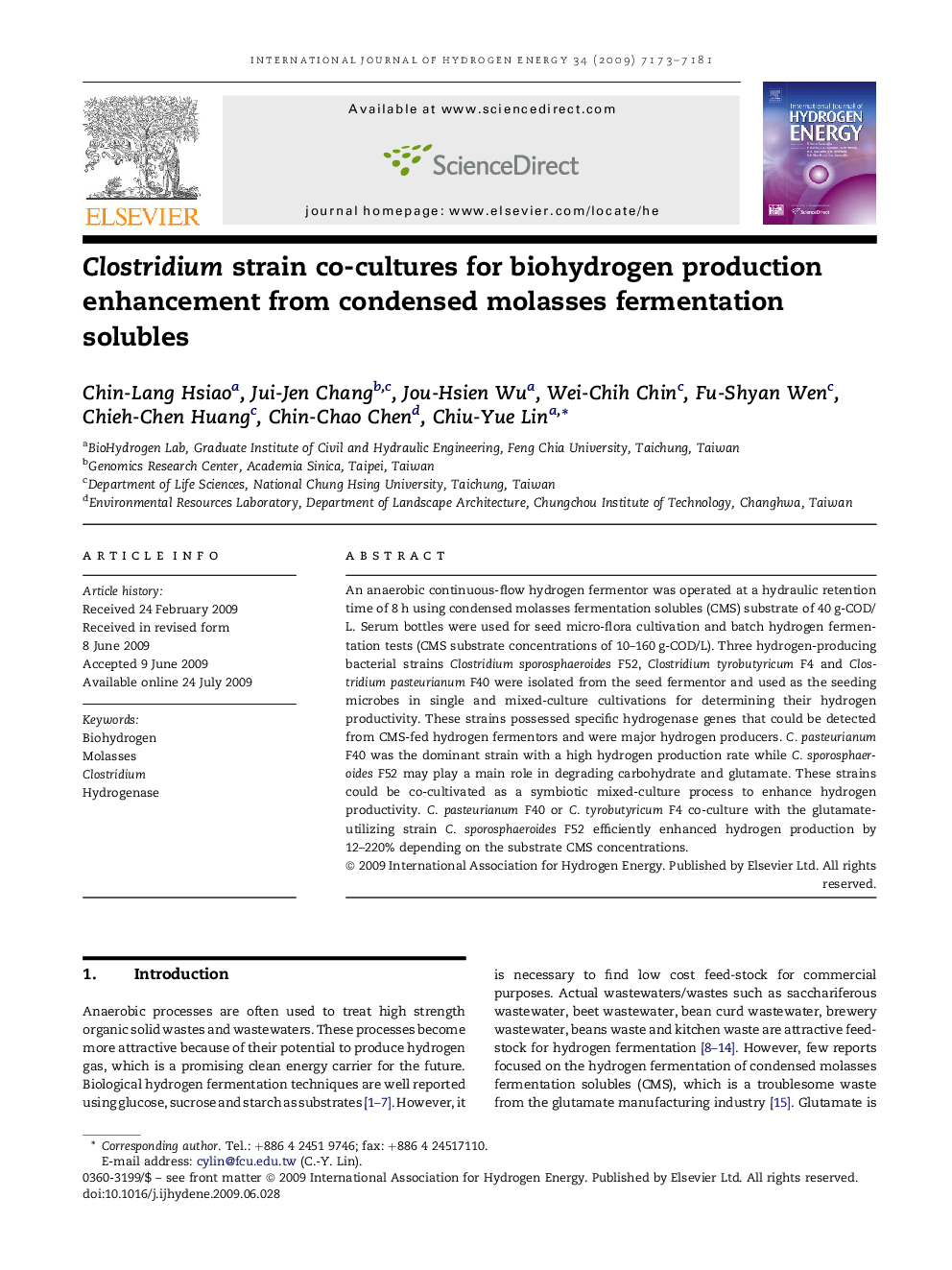| Article ID | Journal | Published Year | Pages | File Type |
|---|---|---|---|---|
| 1281102 | International Journal of Hydrogen Energy | 2009 | 9 Pages |
An anaerobic continuous-flow hydrogen fermentor was operated at a hydraulic retention time of 8 h using condensed molasses fermentation solubles (CMS) substrate of 40 g-COD/L. Serum bottles were used for seed micro-flora cultivation and batch hydrogen fermentation tests (CMS substrate concentrations of 10–160 g-COD/L). Three hydrogen-producing bacterial strains Clostridium sporosphaeroides F52, Clostridium tyrobutyricum F4 and Clostridium pasteurianum F40 were isolated from the seed fermentor and used as the seeding microbes in single and mixed-culture cultivations for determining their hydrogen productivity. These strains possessed specific hydrogenase genes that could be detected from CMS-fed hydrogen fermentors and were major hydrogen producers. C. pasteurianum F40 was the dominant strain with a high hydrogen production rate while C. sporosphaeroides F52 may play a main role in degrading carbohydrate and glutamate. These strains could be co-cultivated as a symbiotic mixed-culture process to enhance hydrogen productivity. C. pasteurianum F40 or C. tyrobutyricum F4 co-culture with the glutamate-utilizing strain C. sporosphaeroides F52 efficiently enhanced hydrogen production by 12–220% depending on the substrate CMS concentrations.
